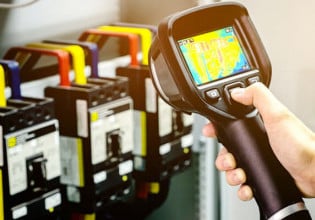STMicroelectronics announced that Carmelo Papa, Executive Vice President and General Manager of ST's Industrial and Multisegment Sector, has been re-elected Chairman of EPoSS (European Platform on Smart Systems) for his second consecutive two-year term. EPoSS is an industry-driven initiative that aims to strengthen Europe's capacity to organize and deliver innovation in smart systems integration, in addition to integrated micro-systems and nanotechnologies. It brings together companies of all sizes, public and private research organizations, universities, representatives of the European Commission, and other European initiatives within the smart systems integration field.
"Across-the-board R&D cooperation is absolutely essential for Europe on its path to becoming a smart, sustainable and inclusive economy by 2020," said Carmelo Papa, Chairman of EPoSS. "A key contributor to the EU's growth strategy for the coming decade, EPoSS strives to accelerate and coordinate Europe's efforts and initiatives in smart systems and technologies that aim to address global challenges like health and aging or sustainable mobility."
In his second term at the head of EPoSS, Papa aims to further strengthen the organization's role in key European initiatives, including "Green Cars," "Internet of Things" and "Factories of the Future." His other priorities include driving the EPoSS Strategic Research Agenda to identify new application challenges, such as robotics, and defining development paths at both the technology and systems level.
Papa continues in his role at ST, which includes overall responsibility for developing a wide range of products including sensors, power and analog chips, microcontrollers, application-specific non-volatile memories and smart card ICs. He is a member of ST's Corporate Strategic Committee and sits on the Board of Directors of ST New Ventures.
Smart Systems are miniaturized, networked, energy-autonomous and highly reliable electronic devices or systems that can diagnose and describe a situation, and then help the decision-making process in time-critical conditions. They can also mutually address and identify each other and enable a product to interact with the environment.
Smart systems integration penetrates several industry sectors, bringing many market opportunities and requiring a broad-based manufacturing infrastructure. They can be used in a myriad of fields ranging from low-cost high-volume automotive applications to high-cost low-volume instrumentation applications, and including areas such as medical, aerospace, and security and communications.






